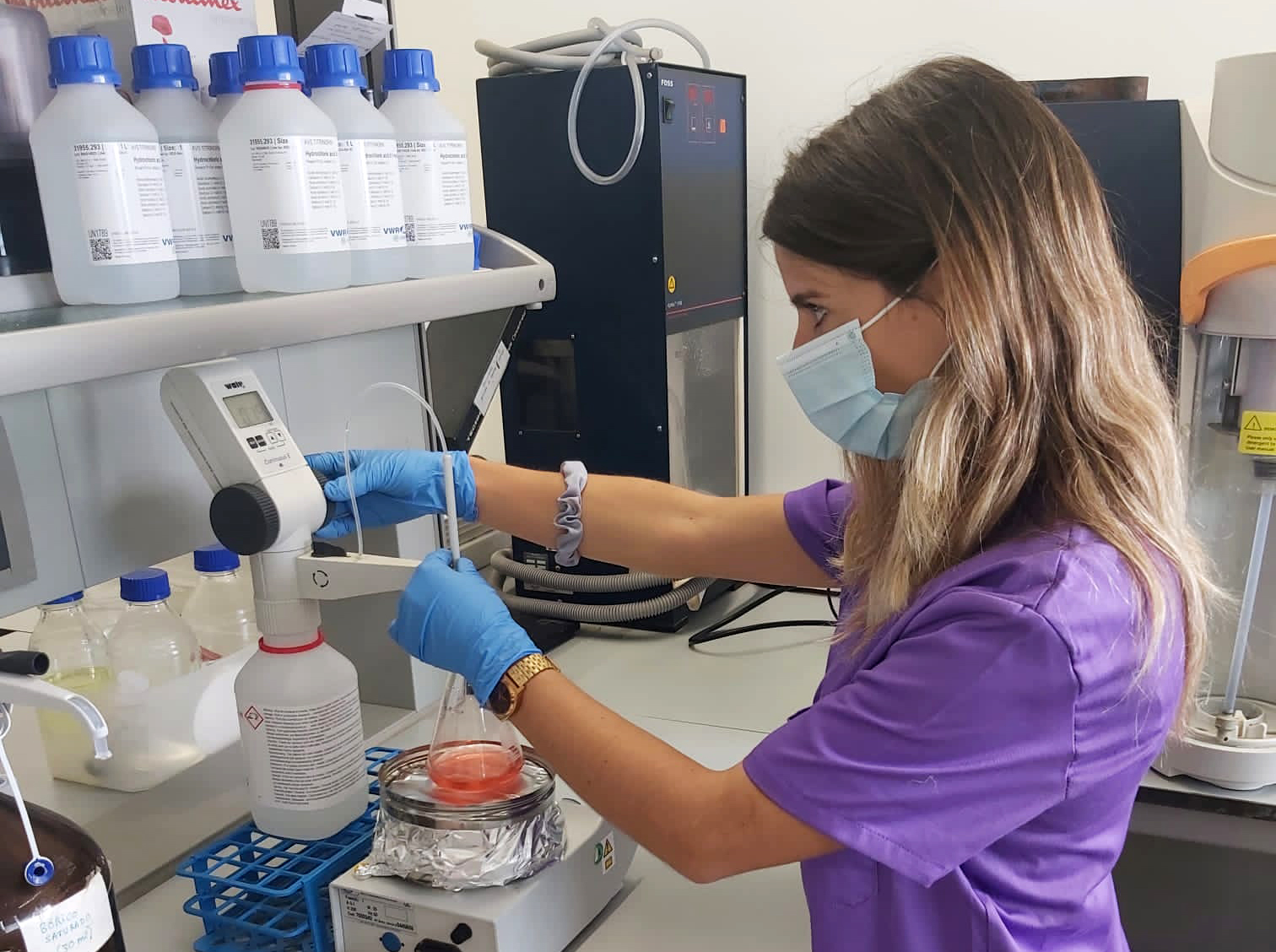The Portuguese researcher Marta Carvalho, who is carrying out experimental work for her doctoral thesis at the Aquaculture Research Group (GIA) of the ECOAQUA University Institute of the University of Las Palmas de Gran Canaria (ULPGC), was the winner among of 200 women applicants from all over the world. The scholarships initiative of the Nordic giant, one of the largest aquaculture producers of sustainable salmon in the world, aims to recognize the role of women in the aquaculture sector.
The prestigious Norwegian company Kvarøy Arctic announced this week the two recipients of its second scholarship fund for women studying in the field of aquaculture.
The student from the University Institute for Research in Sustainable Aquaculture and Marine Ecosystems (ECOAQUA) of the University of Las Palmas de Gran Canaria (ULPGC), the Portuguese Marta Carvalho, was the selected winner for the global prize, whereas the Nigerian Agustina Oyebadejo, was the selected for the section intended exclusively for candidates from the African continent. The two winners have been chosen among 200 applications from more than 30 countries to be recipients of the 'Women in aquaculture' scholarship that includes a fund of 10,000 USD and the opportunity to do a one-month paid internship in the famous company Kvarøy Arctic's.
The scholarship was organized in collaboration with the NGO Seafood and Gender Equality (SAGE), and it highlight the talent of emerging female researchers in the aquaculture sector, with the purpose of encouraging other female trainees to further involve and study in the aquaculture field, which is largely male-dominated.
Most of the applications came from students from the United States, Nigeria, and Kenya, with more than 90 applications, and from countries such as Iran, Myanmar, Zimbabwe and New Zealand. The pool of applicants was sifted through a selection process that narrowed down the candidates based on the focus of the studies and the financial needs of their projects, among other qualifying factors. The requirements to be eligible for the scholarship was to be studying a program related to aquaculture, to be a woman and to be fluent in English.
For the only recipient of the global scholarship, "this is an excellent initiative that demonstrates the great generosity of a company that is recognized worldwide for its work in sustainable aquaculture of salmon. This scholarship will give me the opportunity to continue my education and further develop my skills and knowledge in the aquaculture sector, for which I am very grateful to Kvarøy Arctic," says Marta Carvalho.
Carvalho did her bachelor's and master's degrees at the University of Porto, her hometown. In her last year of her master's degree, thanks to an ERASMUS+ scholarship, she carried out the experimental research for her dissertation at the Aquaculture Research Group (GIA) of the University Institute ECOAQUA of the ULPGC under the direction of Professor Marisol Izquierdo.
In April 2018 Carvalho was awarded two PhD scholarships, one from the Portuguese Science and Technology Foundation and the other from the Canary Islands Agency for Research, Innovation, and Information Society (ACIISI), which is the one she finally chose. Since then, she has been working on her doctoral thesis on a research project that aims to find new ingredients that will enable the development of more sustainable and efficient aquaculture feeds to maximize the growth, health and welfare of marine species used in aquaculture.
One of the specific objectives of her research is to study new sources of omega-3 for these feeds, particularly EPA and DHA, nutrients of extreme importance for fish and humans. In this way, says Carvalho, "these omega-3-rich sources will not only increase production efficiency, but also increase their content in the final product that reaches the consumer, thus increasing the human health benefits associated with fish consumption".
As a result of these years of research and hard work, besides being awarded this important 'Women in Aquaculture' grant, Marta Carvalho has published articles in prestigious international scientific journals in the sector and has presented her studies in several international conferences.
In 2018, the Food and Agriculture Organization of the United Nations (FAO) reported that women accounted for only 19 per cent of the 20.5 million people working in the aquaculture field. Based on these statistics, Kvarøy Arctic decided to start the 'Women in Aquaculture' program in 2020 to support women in aquaculture through a dynamic learning and working experience.


